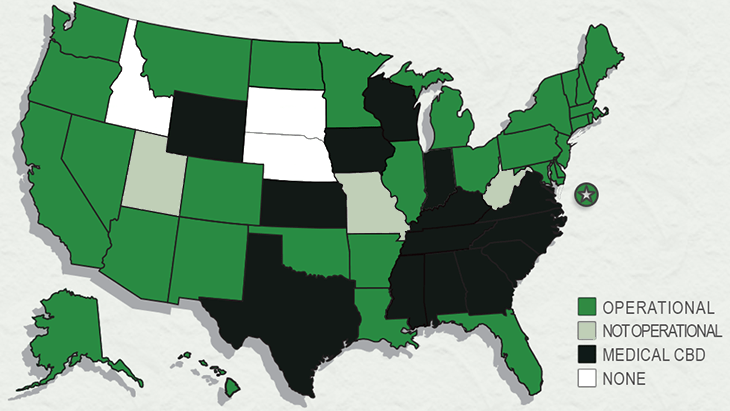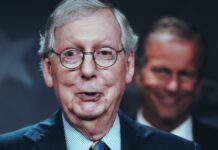
A newly released policy document by the Biden campaign puts forward a plan to “decriminalize marijuana use and reschedule it through executive action on the federal level.”
NORML is skeptical that this proposed recommendation will bring about the sort of tangible marijuana policy changes that voters have consistently demanded — in national polls and at the ballot box.
“It is impractical at best and disingenuous at worst for the Biden campaign to move ahead with these policy proposals,” said NORML Executive Director Erik Altieri. “Rescheduling of marijuana under the Controlled Substances Act would continue to make the federal government the primary dictators of cannabis policy, and would do little if anything to address its criminal status under federal law.”
He added: “Rescheduling marijuana is intellectually dishonest. Just as cannabis does not meet the strict criteria of a Schedule I controlled substance, it similarly does not meet the specific criteria that define substances categorized in schedules II through V.”
On the political implications:
A super-majority of Americans — regardless of their political affiliation — want marijuana to be legally regulated for adults, as is indicated by the following national polls:
Pew Research Center, Nov. 2019
Question: The use of marijuana should be made legal?
- Overall: 67% Yes – 32% No
- Democrats / Lean Democrats: 78% Yes – 20% No
- Republicans / Lean Republicans: 55% Yes – 44% No
Gallup Polling, Oct. 2019
Question: Do you think the use of marijuana should be made legal, or not?
- Overall: 66% Yes – 33% No
- Democrat: 76% Yes – 23% No
- Republicans: 51% Yes – 47% No
- Independents: 68% Yes – 30% No
Quinnipiac University, Mar. 2019
- Ninety-three percent of Americans support the legalization of medical cannabis according to
For more recent national and state polls, click here.
On the policy implications:
NORML believes that rescheduling cannabis under federal law is impractical and counterproductive. Most Americans want cannabis treated in a manner similar to alcohol, which is unscheduled under federal law; they do not desire to have cannabis regulated like either cocaine or oxycodone, both of which are currently classified as Schedule II controlled substances.
Biden’s calls for marijuana “decriminalization” is only half a loaf at best. Decriminalization, a policy that calls for replacing criminal penalties for low-level possession offenses with civil sanctions, keeps the illicit marijuana marketplace intact, and would continue to place state policies regulating commercial cannabis activities at odds with federal law.
Further, decriminalization continues to classify cannabis as contraband, thereby assuring that police will continue to routinely interact with communities — and communities of color especially — in order to maintain the failed policy of marijuana prohibition. Under such a policy, police will continue to issue citations to those who possess small quantities of cannabis and law enforcement will continue to use force, when necessary, to seize marijuana and marijuana-related contraband. As reported in April by the American Civil Liberties Union, Black Americans are 3.6 times more likely to be arrested for a marijuana crime than white Americans.
As we’ve seen historically, these interactions disproportionately and adversely impact the young, the poor, and people of color, and often lead to police misconduct and sometimes even more tragic results.
To read NORML’s memo on the practical functionality of the Controlled Substances Act, which lays out the need to remove marijuana from the CSA all together, click here.
To read NORML’s factsheet on the racial disparity in marijuana arrects, click here.
NORML Recommends:
NORML urges candidate Biden to join with many of his Democratic colleagues and to throw his support behind The MORE Act, HR 3884 — which would remove marijuana from the Controlled Substances Act and once and for all allow individual states the flexibility and authority to regulate cannabis how best they see fit.
The MORE Act would also make several other important changes. For example, it permits physicians affiliated with the Veterans Administration to make medical marijuana recommendations to qualifying veterans who reside in legal states and it incentivizes states to move ahead with expungement policies that will end the stigma and lost opportunities suffered by those with past, low-level cannabis convictions. If approved, the MORE Act also allows the Small Business Administration to support entrepreneurs and businesses as they seek to gain a foothold in this emerging industry.
The MORE Act became the first bill in US history to end federal marijuana prohibition to be approved in the House Judiciary Committee on November, 20th, 2019 with a bipartisan vote of 24-10.















